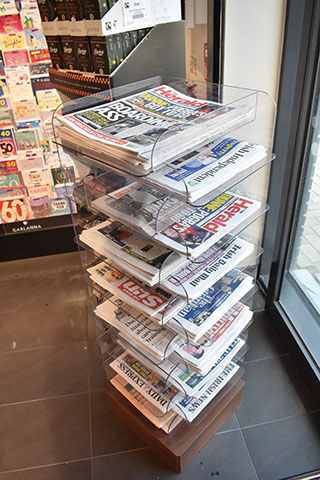
[dropcap]A[/dropcap] DCU study revealed that countries with greater press freedom have lower incidences of bribery involving public officials.
The study, released on September 15th, found that “a free press is associated with a substantial reduction in the percentage of firms that report corruption”. This was specifically the case during interactions with tax officials and when obtaining construction permits.
DCU said the study is the first of its kind to consider the media’s role “in shaping everyday corruption, as seen through the eyes of ordinary business”.
One of the authors of the study, Dr Robert Gillanders said: “Many studies find a strong link between press freedom and corruption perceptions, but no previous work examines this topic from the perspective of firm’s experiences.”
Gillanders, an economist and corruption expert from the DCU Business School, said that “business pursuing opportunities in emerging markets may find it useful to consider the press freedom in such countries”.
The study carried out by Gillanders, Nouf Binhadab, and Dr Michael Breen looked at 110 countries over the years 2006 to 2016. They found that on average, 15.28 per cent of public transactions involved a bribe request, however, there was a large variance between countries.
They found that Norway had the best press freedom score, while North Korea had the worst.
The authors said the findings of the study had a number of important implications, including the suggestion that a free press may reduce the cost of doing business. Furthermore the findings emphasised “the importance of understanding the media environment for firms engaging in cross-border activities”.
The authors also outlined that corruption provides unfair advantages while raising the cost of doing business for all and that a free press may help ensure a level playing field for businesses.
The study explained that the role of the media is “evident in cases such as the release of the Panama Papers and the Paradise papers, which revealed the widespread use of offshore financial centers for illegal purposes”.
However, they said that “such investigative journalism often comes at a high price”, detailing that between 2012 and 2017, 368 journalists were murdered – at least 70 of whom were investigating corruption-related cases.
The authors concluded that press freedom is an “important weapon” in the fight against corruption. They urged that internationl efforts to control corruption should be matched by efforts to promote press freedom. They warned that while it is considered a human right in several treaties, a free press is “continuously under threat across the globe”.
By: Emily Sheahan
Image Credit: Mikey Walsh



